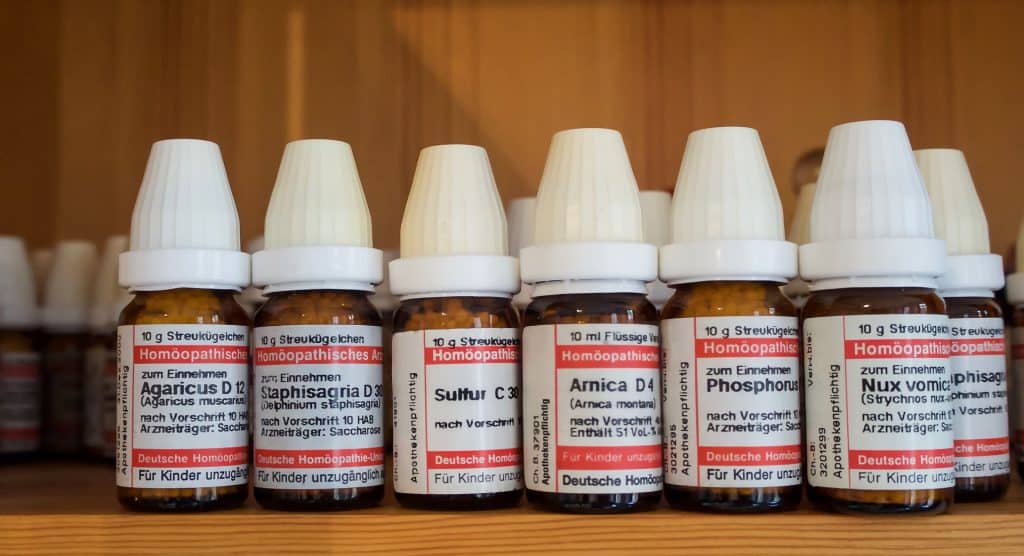Homeopathy Alleviates Sleep Disorders

from: www.carstens-stiftung.de
A recent, methodologically high-quality study demonstrates the effectiveness of individualized homeopathy in subjects with sleep problems.
Insomnia refers to difficulties falling or staying asleep, sleep problems on at least three nights a week, or sleep disorders that lead to impaired daytime performance. These complaints are widespread; depending on the source, 6-18% of the population suffers from them. This is particularly precarious because sleep disorders not only reduce quality of life but also increase the risk for certain diseases such as depression or anxiety disorders. The causes are diverse. For example, existing psychological or other illnesses, as well as side effects of medications, can affect sleep quality. Sleeping pills (hypnotics) are frequently used for treatment; although effective, they can also have numerous side effects and a certain addictive potential. For this reason, and especially due to the diverse manifestations of insomnia, homeopathy could represent a suitable treatment method. To examine this, a recent study compares individualized homeopathic treatment with a placebo.
The Study
From a total of 174 eligible patients, 60 subjects were selected, both men and women aged 18-65 years who suffered from chronic sleep disorders. 30 subjects were randomly assigned to the homeopathy group and the other 30 to the placebo group. Both groups were comparable at the start of the study.
The subjects in both groups were asked to keep a sleep diary and record six factors:
- The time required to fall asleep.
- How many minutes they lay awake at night.
- How many minutes they woke up too early.
- How many hours they spent in bed.
- Total sleep time in hours.
- Sleep efficiency.
In addition, the so-called Insomnia Severity Index (ISI) was used. This is a questionnaire with seven questions designed to provide information about the subjects’ perception of their symptoms. Both groups were equally encouraged to practice good sleep hygiene. They were instructed to use the bed exclusively for sleep during the study, maintain regular sleep times, avoid naps after 3 PM, and consume no caffeine after midday.
In the homeopathy group, however, the subjects received – adapted to their symptoms, constitution, medical history, etc. – a homeopathic treatment in which they took highly potentized preparations in individual dosages.
The most frequently used remedies were
- Natrium muriaticum
- Nux vomica,
- Calcium carbonicum
- Lycopodium clavatum
- Mercurius solubilis
- Phosphorus
- Sulphur
- Pulsatilla pratensis
- Sepia succus
- Thuja occidentalis
The subjects in the placebo group received a preparation that was identical in appearance but substantially ineffective. Neither the subjects nor the administrators knew before the end of the study which group they were assigned to or whether it was a homeopathic preparation or a placebo. The study lasted a total of three months. The values from the sleep diary and the ISI were compared at the beginning and end of the study. Both groups achieved a significantly higher score on the ISI.
Results
Within the homeopathy group, however, after three months, all but one of the factors recorded in the sleep diary had additionally improved significantly. In the placebo group, on the other hand, only one factor showed significant improvement.
The advantage of homeopathic treatment became particularly clear in the group comparison: regarding the points
- Hours spent in bed
- Total sleep time in hours and
- Sleep efficiency
the effects in the homeopathy group significantly surpassed those in the placebo group.
Assessment
A major strength of the present work is its methodological quality in the form of a double-blind, randomized, placebo-controlled study with two parallel arms. Only five participants dropped out of the study prematurely; however, the missing values were statistically calculated so that the data of all 60 patients could be considered (so-called intention-to-treat analysis).
Nevertheless, the number of subjects is relatively small, and the same applies to the duration of the study. Therefore, both should be increased in future investigations to obtain even more robust results.
This first study, however, indicates that homeopathy can be an effective alternative to the frequently used, risky hypnotics for sleep disorders.
References
James Michael, Subhas Singh, Satarupa Sadhukhan, Arunava Nath, Nivedita Kundu, Nitin Magotra, Susmit Dutta, Maneet Parewa, Munmun Koley, Subhranil Saha: Efficacy of individualized homeopathic treatment of insomnia: Double-blind, randomized, placebo-controlled clinical trial. In: Complementary Therapies in Medicine Volume 43, April 2019, Pages 53-59. Abstract
